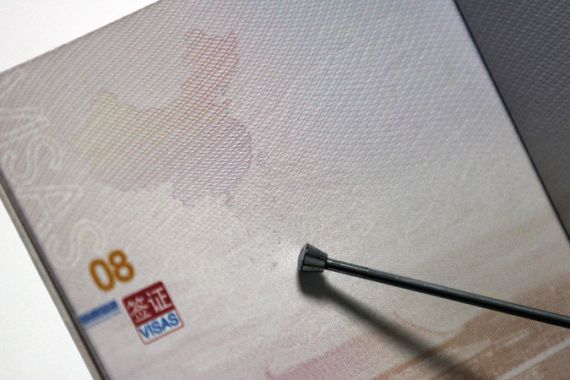US concerned over China passport map
US says it will raise concerns with Beijing over “tension and anxiety” among South China Sea claimant states.

The US has said it will raise concerns with Beijing over a map printed in new Chinese passports that is causing “tension and anxiety” among claimant states in the disputed South China Sea.
“We do have concerns about this map which is causing tension and anxiety between and among the states in the South China Sea,” State Department spokeswoman Victoria Nuland told a news briefing on Tuesday.
Keep reading
list of 4 itemsCould shipping containers be the answer to Ghana’s housing crisis?
Thousands protest against over-tourism in Spain’s Canary Islands
Holding Up the Sky: Saving the Indigenous Yanomami tribe in Brazil’s Amazon
“We do intend to raise this with the Chinese in terms of it not being helpful to the environment we all seek to
resolve these issues.”
The Philippines and Vietnam have objected that the map shows disputed maritime regions as belonging to China.
India has also complained over the map’s depiction of its northern border with China and retaliated by issuing Chinese citizens visas embossed with New Delhi’s own maps.
‘Politically smart’
Nuland said it was up to countries to decide what their passports look like and the US would still accept the Chinese one as a legal document.
But she added: “That’s a different matter than whether it’s politically smart or helpful to be taking steps that antagonise countries.”
The US intervention will not be welcomed by Beijing, which regards as meddling Washington’s advocacy for peaceful settlement of the conflicting claims in the South China Sea, a potential regional flashpoint.
The US has no territorial claim itself but says it has a national interest in the stability of a region vital to global trade.
Taiwan has also condemned the map, which is printed on inside pages of the passport. Taiwan is self-governing but Beijing claims it as part of China.
The map shows an outline of China and includes Taiwan and the sea, hemmed in by dashes. Chinese official maps have long shown the same, but this is viewed as particularly provocative since it requires other nations to stamp it.